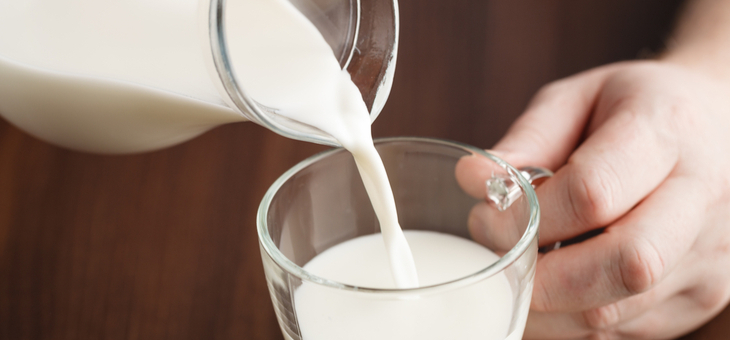“Low fat, no fat, full cream, high calcium, high protein, soy, light, skim, omega-3, high calcium with vitamin D and folate, or extra dollop?”
As captured in a viral ad for Paul’s milk, the number of available milk options can seem overwhelming. Not all milks are equal when it comes to calcium content, protein and nutrition. Here is a guide to what milk is likely to be best for your nutritional and dietary needs.
A2 milk
A1 and A2 are forms of beta-casein, a protein found in most milk. While most milk bought from the supermarket will contain both A1 and A2, a growing body of research suggests that, for some individuals, digestive discomfort from drinking milk can be avoided by drinking milk containing A2 only. Both proteins are nutritious, but if you suspect your digestive discomfort may be caused by the A1 protein, you may choose to try A2-only milk.
Lactose-free milk
Lactose is a type of sugar found in dairy products. People with a lactose intolerance don’t produce enough of an enzyme called lactase, which is essential for breaking down lactose. Lactose-free milk has undergone a process that breaks down lactose so that the consumer doesn’t have to.
Skim milk
Skim milk is fat free milk. It contains the same nine essential nutrients and protein as regular whole milk, but has fewer calories. People wanting all the usual benefits of milk, but with fewer calories, should consider drinking skim milk.
Soy milk
Soy milk is both dairy and lactose free, so may be preferred by people who have intolerances or who don’t consume animal products. Some brands of soy milk are fortified with calcium during production. Checking that you select a brand such as this will help you meet a healthy daily calcium intake.
Rice milk
Rice milk is also lactose free and vegan friendly. It naturally contains a lower level of calcium and protein than common dairy milks, but can be fortified to contain them during production.
Almond milk
While lower in calcium and protein than cows’ milk, it is also lower in calories and saturated fats. Similar to soy and rice milk, it is vegan friendly and lactose free.
Organic milk
Strict guidelines from what cows eat to how they are cared for by farmers distinguish organic milk from regular milk. If a cow has been given antibiotics, then its milk cannot be labelled organic. Despite this, tests have shown that regular pasteurised milk does not have any antibiotic residue above the tolerance level.
Always check the label on your milk carton to see if it is best for you.
Have you abandoned cows’ milk for a non-diary or vegan alternative? Has it made a difference to your health? Why not share your findings in the comments section below?
If you enjoy our content, don’t keep it to yourself. Share our free eNews with your friends and encourage them to sign up.
Related articles:
Can turmeric improve your health?
Australia’s fattest postcodes
What’s the big deal with omega-3s?
Disclaimer: This article contains general information about health issues and is not advice. For health advice, consult your medical practitioner.

